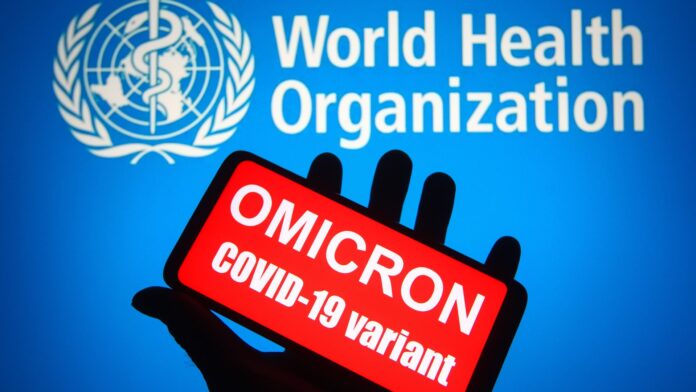The World Health Organisation (WHO) on Wednesday said fuelled by Omicron, more than 15 million new cases of COVID-19 were reported around the world last week, by far the most cases reported in a single seven day period.
Briefing reporters in Geneva, WHO Director General, Tedros Ghebreyesus, said the “huge spike” was being driven by the Omicron variant, which is rapidly replacing Delta in almost all countries.
Inspite of the number of cases, the weekly reported deaths have “remained stable” since October last year, he added, at an average of 48,000.
According to him, the number of patients being hospitalised is also increasing in most countries, but it is not at the level seen in previous waves.
He told reporters this was possibly due to the reduced severity of Omicron, and widespread immunity from vaccination or previous infection.
For the WHO chief, while Omicron causes less severe disease than Delta, it remains a dangerous virus, particularly for those who are unvaccinated.
“Almost 50 thousand deaths a week is 50 thousand deaths too many,” Ghebreyesus said. “Learning to live with this virus does not mean we can, or should, accept this number of deaths.”
For him, the world cannot “allow this virus a free ride” when so many people around the world remain unvaccinated.
In Africa, for example, more than 85 per cent of people are yet to receive a single dose of vaccine.
“We cannot end the acute phase of the pandemic unless we close this gap,” he said.
The UN health agency chief then listed some progress towards reaching the target of vaccinating 70 per cent of the population of every country by the middle of this year.
In December, COVAX shipped more than double the number of doses it distributed in November. In the coming days, the initiative should ship its one billionth vaccine dose.
Some of the supply constraints from 2021 are also starting to ease, he said, but there’s still have a long way to go.
So far, 90 countries have still not reached the 40 per cent target, and 36 of those countries have vaccinated less than 10 per cent of their populations.
Ghebreyesus also highlighted an interim statement from the WHO Technical Advisory Group on COVID-19 Vaccine Composition, released on Tuesday, stressing that further vaccines are needed that have a greater impact on preventing infection.
Until such vaccines are developed, the experts explained, the composition of current vaccines may need to be updated.
The Group also said that a vaccination strategy based on repeated booster doses is “unlikely to be sustainable.”
According to him, the overwhelming majority of people admitted to hospitals around the world are unvaccinated.
At the same time, while the immunisations remain very effective at preventing severe disease and death, they do not fully prevent transmission.
“More transmission means more hospitalisations, more deaths, more people off work, including teachers and health workers, and more risk of another variant emerging that is even more transmissible and more deadly than Omicron,” he said.
The sheer number of cases also means more pressure on already overburdened and exhausted health workers.
A study published in 2021 showed that more than one in four health workers have experienced mental health issues during the pandemic. Data from several countries also show that many have considered leaving or have left their jobs.
On Tuesday, WHO hosted a global webinar, attended by clinicians from around the world, on the clinical management of the virus during pregnancy, childbirth and the early postnatal period.
As stated earlier in the pandemic, pregnant women are not at higher risk of contracting COVID-19, but if they are infected, they are at higher risk for severe disease.
“That’s why it’s vital that pregnant women in all countries have access to vaccines to protect their own lives, and those of their babies,” he said.
The agency chief also called for pregnant women to be included in clinical trials for new treatments and vaccines.
He also stressed that, fortunately, mother to baby transmission in utero or during birth is very rare, and no active virus has been identified in breast milk.





